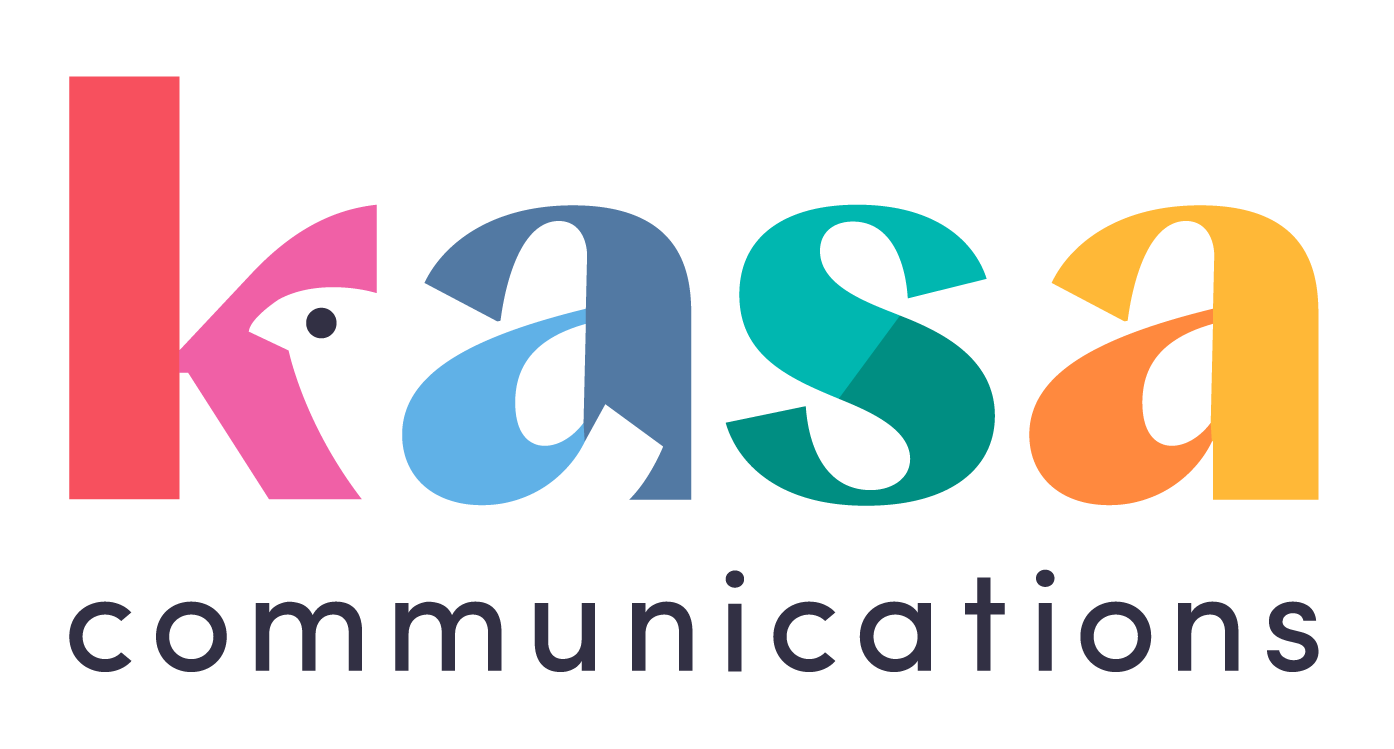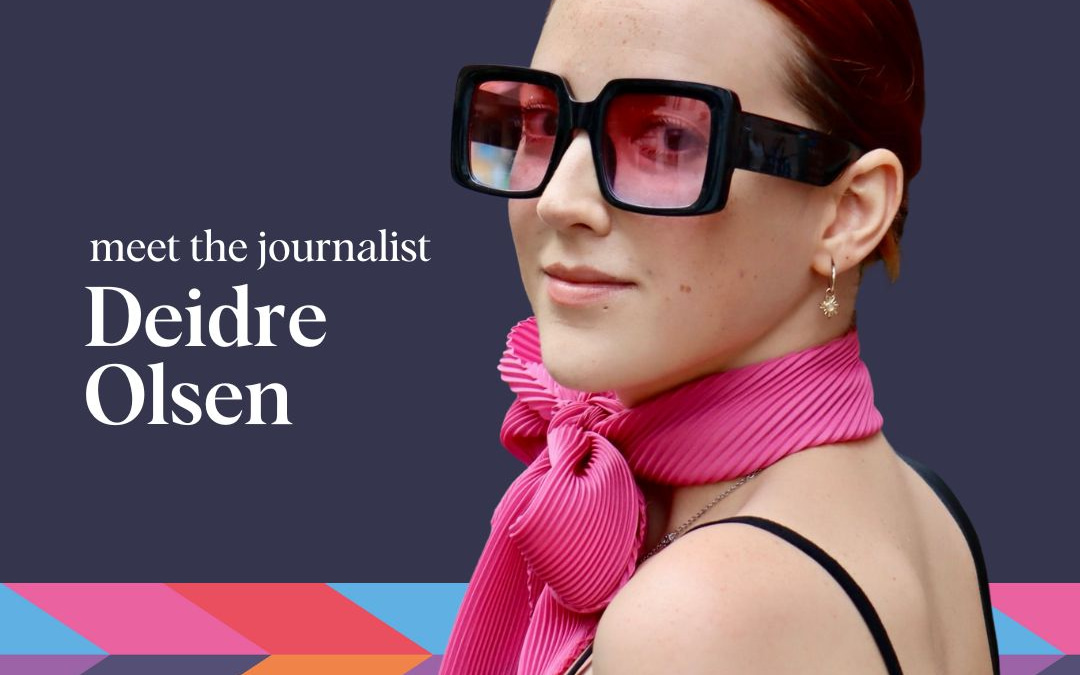Deidre Olsen is a Canadian freelance journalist who lives in Berlin. She is an award-nominated writer, editor and journalist who has written for the New York Times, NBC News, Vice, The Cut, Refinery29 and many others.
Deidre specialises in writing about social justice, LGBT issues, gender, sexuality, human rights, indigenous issues in Canada, politics and mental health. She is currently writing a memoir about self-destruction, healing and resilience.
When did you first realise you wanted to become a journalist?
It was 2016. I’d studied political science as an undergrad in Vancouver and graduated in 2014. I didn’t know what I wanted to do but knew I wanted to make the world a better place. I always loved writing, but never imagined I could be a journalist. Two years after graduating I decided to give it a shot – I got a couple of bylines and it grew from there.

How did you enter the profession (education/training etc)?
I did a journalism fellowship at the University of Toronto. I wanted to find a media job and it seemed impossible – job postings said you need a master’s degree. I thought that in order to be taken seriously and get a media job I had to have some kind of credentials.
I saw this journalism programme, which I had to take a bank loan out for and get my mother to co-sign. It was a cool experience, it looks great on my resume, but I doubled my debt and I regret that. I just wanted a journalism credential behind my name, but I think I would have been fine self-taught.
What was your first job in journalism?
I was associate editor at a Toronto-based real estate publication called Storeys. I worked there at the end of 2019. I was laid off from there – that fall there was restructuring across the entire industry in Canada and unfortunately I was one of those media losses.
What was the first story you wrote?
My first story was for Thought Catalog and it was called ‘I have no idea what I’m doing and that’s perfectly okay’. It was ruminations on having no idea what to do with my life as a recent graduate.
My first paid story was for Paste magazine in 2017. It was called ‘Why sending Stephen Hawking to space matters’. It talked about why it would be fabulous for disabled people to see themselves in space. It was a beautiful thing for disabled people to imagine they would be able to go to space.
What media titles have you worked for during your career?
I’ve worked as associate editor on Storeys magazine and senior editor at The Pointer, an investigative news start-up. I’ve written for more than 50 titles, including The New York Times, NBC News, Salon, Thought Catalog, The Cut, The Globe And Mail and MacLean’s magazine.

What is your favourite story to have worked on?
This year I had my first New York Times byline, I had been pitching them for years – ‘My wise younger self’. It’s a tiny little piece, but it was in print and that was thrilling.
There was one I wrote in 2017, it was one year after I started writing and it was for The Cut, which is part of New York magazine. That was really thrilling because it was one year in and I thought there’s no way they are going to accept my essay, but they did. It’s a pretty vulnerable essay about surviving childhood sexual violence and the emotional aftermath. That essay had such great feedback, people encouraged me to write a book and three years later I won a grant from the Canadian government to work on my memoir.
What’s the most difficult story you’ve worked on?
An essay I wrote for MacLean’s magazine, it’s a letter to my mother. They have a series called ‘Before you go’ which is a letter to somebody you love before they pass away, so I wrote her a letter about how she pursued justice against the perpetrator of sexual violence in my childhood. It’s a love letter to her to say that even though the justice net did not prevail, she did. It is a very emotional story.
Who’s the most famous person you’ve interviewed?
A well-known Canadian journalist called Justin Ling, he worked for Vice and did a lot of important reporting in Toronto. I also did a story for Vice and I interviewed Glenn A Albrecht a famous professor who does work on climate change.
Describe your working day.
It ebbs and flows. With freelance work it’s very feast and famine, so some days it’s nothing at all and others it is furiously interviewing several people within the span of a few hours and trying to turn around an article.
I did one story about the Canadian Charter of Rights and Freedoms, so I was interviewing three lawyers; then I did another story on people with bleeding disorders in the United States. I interviewed 10 people in two weeks – that’s a lot of transcription, note taking and writing.
I feel like no day is typical. I have some longer-term freelance clients then I have one-off pieces here and there, so it really differs from day to day. Sometimes I have a week where I’m doing pretty much nothing and then other weeks, I have a day where I’m on my laptop for 14 hours.

With deadlines and the fast-paced environment of journalism, it must be quite a pressurised and stressful job. How do you relax in your spare time?
I go to the gym for stress relief, or I go for a long walk – I live near a lake so if I want something less intense I go for a nice long walk around the lake. I try to get fresh air, get my body moving and get my face away from the screen, getting my endorphins going.
I quit drinking coming up on three years ago. My life has gotten a million times better since. I quit December 2019 so that was rough because then the pandemic hit. I’m very proud of myself for making it through it without losing it.
It’s thrilling being yourself. It has given me a lot more courage and bravery to get out into the world and do things. I can be with myself more often. There are only benefits. I’ve also started weightlifting.
How do you prefer to be contacted by people (email, telephone etc)?
Email would be best.
What day/time is best to contact you?
I’m pretty open, I’m used to communicating round the clock.
How can people submitting news stories best grab your attention with their press releases?
My name spelled right – that’s always number one. Personalisation and sending me something I would want to write about.
If somebody has clicked on my website and seen the kind of things I cover, and they’ve personalised the email and spelled my name right, then I’m much more likely to answer. Mass emails with no personalisation are probably going to get deleted.
How important is it for people to supply photographs/images with their press releases?
If it’s a product then I would definitely want to see an image of the product, or at least some links where I can find out more information.
What advice can you give on the type of photographs/images to supply?
The format doesn’t necessarily matter, but the higher quality the better. It shows professionalism and that you’ve put care into it, and that’s important.
Connect with Deidre through her website DeidreOlsen.com

